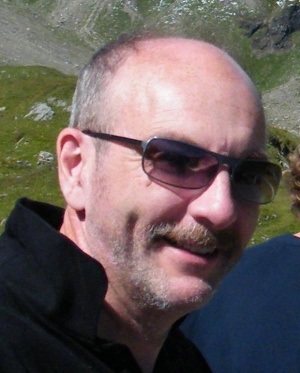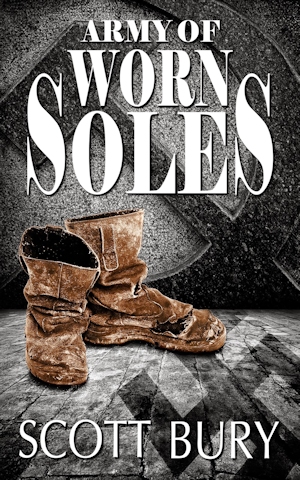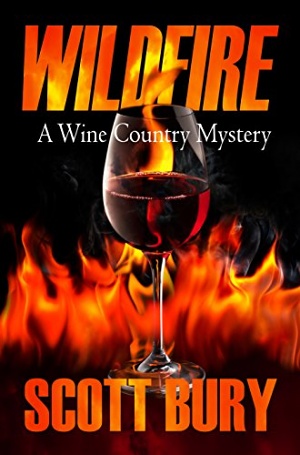Scott Bury Interview
 A professional editor, journalist and writer for over 30 years, Scott Bury’s work has appeared in publications in Canada, the U.S., the U.K. and Australia. He has also developed and improved books, magazines, newsletters, websites, e-books and other print and electronic publications.
A professional editor, journalist and writer for over 30 years, Scott Bury’s work has appeared in publications in Canada, the U.S., the U.K. and Australia. He has also developed and improved books, magazines, newsletters, websites, e-books and other print and electronic publications.
Born in Winnipeg, Manitoba, he grew up in Thunder Bay, Ontario. He holds a BA from Carleton University’s School of Journalism. He is a recipient of Maclean Hunter’s Top 6 Award and a member of a team that won a Neal Award for business reporting.
Visit Scott Bury’s website and blog.
You can also find Scott on Amazon, Twitter and Facebook.
———————————————————-
What motivates you to write and how did you get started?
I have heard some writers say they don’t like writing, but like “having written.” I, however, enjoy the act of writing, itself. Much like I enjoy swimming, hiking or biking.
I like telling a story that pulls readers along, that reveals characters through their words and actions and that paints a picture in the readers’ minds.
I have a lot of ideas for stories and novels in notebooks and in dark corners of my mind, and I hope to be able to get them all down onto paper—or a screen—one day.
I took a long time to get started as a writer of fiction. I had a 20-plus year career as a journalist, which was invaluable in forming and improving my writing abilities and style. And for years, I had many ideas for novels—or at least, the beginnings of novels, or vague concepts of stories.
Finally, I decided to just sit down and form those vague ideas into books.
What’s most rewarding about writing?

Telling a story or revealing a fact or perspective that no one else has, yet.
What’s your favorite genre and why?
I read many different genres. When I was a teenager, I loved science fiction, especially the stuff that really pushed the boundaries of the genre and of fiction, itself. Writers like Samuel R. Delany and Philip K. Dick were my favourites.
As a young man, I got into 30s-era noir detective thrillers—Chandler, Hammet and their successors like Ross MacDonald. I liked the spare, tight and wry style.
However, I realized a few years ago that my favourite books seem to all fall into the magic realism category. I really enjoy, and find myself re-reading more than once, books like Winter’s Tale by Mark Helprin, One Hundred Years of Solitude by Gabriel Garica Marquez, Velvet Rain by David C. Cassidy and The Master and Margarita by Mikhail Bulgakov.
And I can’t let this question go without mentioning some of the excellent independent writers I have discovered in the past two years or so: Elise Stokes, Seb Kirby, Bruce Blake, Ben Wretlind, Terry Tyler, Frederick Lee Brooke, Alan McDermott, Gary Henry and Zoe Saadia.
Where do your characters come from?
I like to base my characters on people that I know. In my first published novel, the protagonist, Javor, is based on my two sons. Other characters are based on friends and colleagues, or amalgams of people that I know.
Who is an author who inspires you and why?
Umberto Eco is one. I love the intellectual structure of his books and the spot-on characterization.
Bruce A. Blake (Khirro’s Journey and The Small Gods series) inspires me with his dedication, the way he writes and publishes new books regularly and through such a professional process.
What do you look for in other people’s books?
I have to admit, I’m kind of a stickler for good grammar. Run-on sentences, incorrect agreement, wandering tenses and the like are instant turn-offs. It’s especially important for independent writers to maintain professional standards when it comes to editorial quality.
I also dislike stock characters: the bad boy, the strong-but-silent guy, the feisty little woman, the invincible ex-soldier, the maverick cop . . . we’ve seen them all so many times, we can predict what they’re going to say every time.
I like books that are based on solid ideas and that take me somewhere I have never been before. I want to read new ideas, new perspectives. It can be about history, or geography, but I want to learn when I read.
What are you writing now?

I am working on the sequel to Army of Worn Soles, the book I’m bringing out on June 22. Army of Worn Soles is the story of my father-in-law, Maurice Bury’s experience in the Red Army during the Second World War in 1941.
His experiences naturally fall into two main phases, so it made sense to present them as two books. The first, which, as I said, is coming out this June, is the first half, and it covers Maurice’s youth to the time he was drafted by the Soviet army just before Nazi Germany invaded the USSR. The second book will mostly be about his experience at the end of the war, where he fought from 1944 to 1945, across eastern Europe to the fall of Berlin, and his experience in the aftermath of the war.
What kind of book would you like to be known for?
The kind of book that makes you think about people and society in a new way.
What has writing taught you about yourself?
That getting it right is very important to me. While immersed in the act of writing a story, I keep finding myself going back to the research to check facts that are important parts of the background.
I also realized how important culture is to a person, and to getting the story right. A lot of my research is into aspects of culture, like realistic names of people and places, food, clothing, all those little elements that we take for granted and then find so jarring when we travel.
How has your life experience influenced your writing?
My experience and training as a journalist has really helped my ability to do background research, and also made me look carefully at personalities.
As I mentioned, I also try to base my characters on real people. That way, when a character faces a choice, I can think “What would the person I have based this character on do in this situation?”
What encouraging advice can you offer new writers?
While it can be discouraging to go through the traditional process of pitching to agents and publishers, only to get rejected over and over again, don’t despair. If you have written a good book—and it has to be a good book—the independent route is more and more viable.
I have found that the commercial publishers today don’t so much reject new writers as ignore them. The only new writers they seem to take on are those who are already famous in some way.
On the other hand, if you want to follow the independent route, you’ll find a supportive, kind and encouraging community that will help you whenever you need help. If you dedicate yourself to producing the best writing you can, and you enlist others in reading, editing, re-reading and promoting your book, if you use talented, professional people to edit, design and lay out your book, you will find success. It may not become a million copy seller, but it will be a good book that will bring you a lot of satisfaction.
That’s why I do not accept the term “self-published.” It takes more than one person to produce a good book. Any author needs some other people to read the early drafts and give feedback and constructive criticism. They need a professional editor after the writing is finished, because you cannot edit your own stuff.